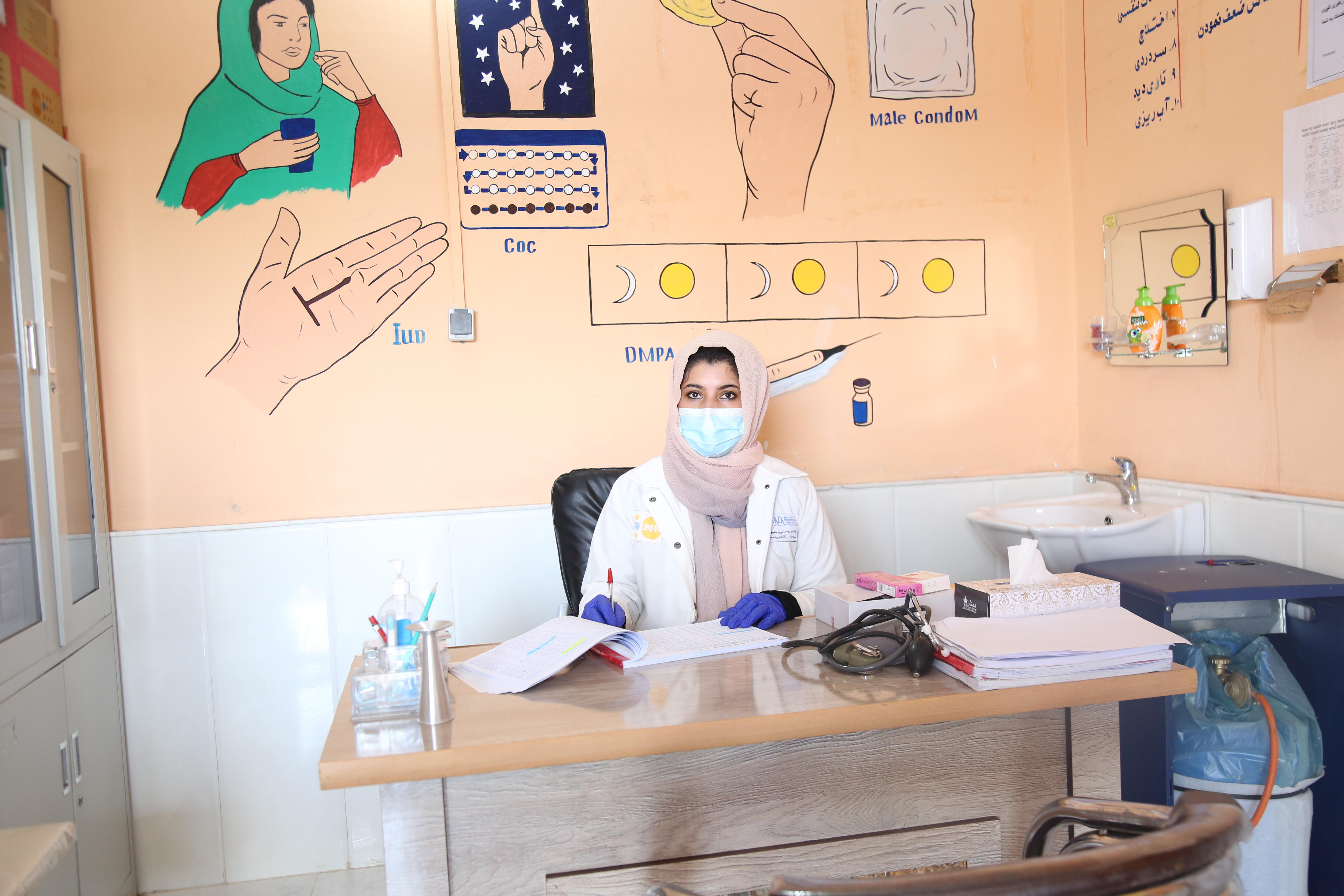“I enjoy my career. I see the positive results every day. My biggest happiness is when the pregnant mothers tell me that they found my support useful.”
As many other Afghan midwives, Mastura Zia (27) has been working as a frontline responder to reproductive health support seekers in Herat city, Afghanistan. However, Mastura’s work differs from those midwives who work at the fixed health centers. Mastura serves at Gazargah Transit Center to provide reproductive health support to the Afghan deportees who have returned from Iran.
Gazargah Transit Center is located in Herat city as a point of entry for Afghan deportees from Iran to stay for a short period as part of their transition. The needy deportees receive reproductive health and psychosocial services through UNFPA’s humanitarian emergency response programme in this center.
Mastura graduated from Herat Midwifery Institute in 2012 and started working with UNFPA supported projects in 2018. “This is emergency response work and although I am usually overloaded with cases, I feel proud to see the good result of my work at the end of the day”, she expressed. “I never given up. I’m committed to serve and save those women and girls who need my support.”
The increasing emergency
The design of the service delivery in Gazargah Transit Center was to support trends of Afghan deportees from Iran. However, COVID-19 added an additional layer to the emergency response when the Iranian Government decided to deport undocumented Afghans in February 2020. The response increased and the staff, including Mastura, had to work harder to fill the gap and demand of additional midwives.
“2020 was the hardest year of my life. When COVID-19 hit as a new threat, everybody was scared and the camp received thousands of deportees daily,” Mastura remembered. “There were many deportees who were pregnant women and in critical situations in need of urgent support. I had to support them.”
The UNFPA supported health center in Gazargah Transit Center provides preliminary reproductive health services, but as the frontline health worker in emergency context, Mastura managed to refer the more severe cases to the provincial hospital and other equipped health facilities.
“The service seekers, particularly the pregnant women whose situation were critical, needed to be introduced to the provincial maternity hospital and I referred them to ensure they received the needed support”, Mastura explained. “But it wasn’t only pregnant women who were in need. Many others who had signs of COVID-19 and those I referred to Herat COVID-19 hospital for testing”.
In July last year, Mastura was tested positive for COVID-19 and had to stop working. “I followed the preventative measures to protect myself from infection, but close and daily interaction with patients resulted in my eventual infection.”
Mastura was under treatment and isolation for three weeks before she was able to return to work. “The services didn’t stop while I was in quarantine. Another midwife supported my function during this period.”
Although many men are not allowing their wives to work outside of their homes in Afghanistan due to traditional beliefs and challenges, Mastura’s husband supports her work.
“When I started working at the transit center, I learned that it isn’t always the people who live in hard-to-reach areas who need reproductive health support. Sometime there are people who are in the cities but are unable to receive support, like the deportees who are the on-the-move population”.
With the generous support of the Italian Agency for Development Cooperation (AICS), UNFPA Afghanistan provides emergency response at Gazargah Transit Center in Herat province.


